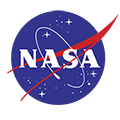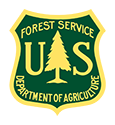About the Carbon Cycle Science Project Office
The US Carbon Cycle Science Program serves as an authoritative information source for US carbon cycle research, observing, and modeling communities through engagement with scientists, federal agency partners, and stakeholder communities and provides the information needed to advance decision-making at local, state, and federal government levels.
A History of the Project Office
UCAR's Carbon Cycle Science Project Office houses U.S. Carbon Cycle Science Program (US CCSP), which was established in 1999 by the USGCRP Carbon Cycle Science Interagency Working Group to coordinate and facilitate carbon cycle science activities relevant to climate and global change issues and defined by the goals and objectives of the A U.S. Carbon Cycle Science Plan (Sarmineto and Wofsy, 1999) and the US Climate Change Science Program: Vision for the Program and Highlights of the Scientific Strategic Plan (2003).
In 2002 and 2006, respectively, the US CCSP helped launch two major activities based on recommendations from A U.S. Carbon Cycle Science Plan (Sarmiento and Wofsy, 1999) and subsequent science plans (Wofsy and Harriss, 2002; Doney, S.C. et al. 2004): the North American Carbon Program (NACP), a multiagency, multidisciplinary scientific research program focused on carbon sources and sinks on North America and adjacent ocean basins, and the Ocean Carbon and Biogeochemistry Program (OCB), to explore the ocean’s role in the global carbon cycle and the response of marine ecosystems to environmental changes of the past (paleo), present, and future (prediction). The US CCSP continues its strong collaboration with these programs.
CCSP at Present
As mentioned, currently, the US CCSP resides in the Carbon Cycle Science Project Office (CCSPO) within the Cooperative Programs for the Advancement of Earth System Science (CPAESS) branch of the University Corporation for Atmospheric Research (UCAR), located in Boulder, Colorado. CCSP still collaborates closely with NACP and OCB, and is responsible for putting together the Third Decadal Carbon Cycle Science Plan, aimed to be completed by mid-2026.
The US CCSP is motivated by the five goals identified in the Second US Carbon Cycle Science Plan (Michalak et al., 2011) to:
- Provide clear and timely explanation of past and current variations observed in atmospheric carbon dioxide and methane
- Understand and quantify the socioeconomic drivers of carbon emissions, and develop transparent methods to monitor and verify those emissions
- Determine and evaluate the vulnerability of carbon stocks and flows to future climate change and human activity
- Predict how ecosystems, biodiversity, and natural resources will change under different CO2 and climate change scenarios
- Determine the likelihood of ‘success’ and the potential for side effects of carbon management pathways that might be undertaken to achieve a low-carbon future
Presently, key sub-areas of focus for CCSP include:
- Natural and anthropogenic carbon sources and sinks, C cycle feedbacks, Earth system tipping points, vulnerable C stocks
- Monitoring and quantification of emissions to support GHG reduction efforts
- Carbon management and removal: (nature-based, technology based, hybrid), monitoring/reporting/verification (MRV), methodology and standards development
Initiatives
To address these goals, the US CCSP develops and implements multidisciplinary initiatives that advance carbon cycle science priorities across terrestrial, atmospheric, oceanic, and societal dimensions and serves as an information source for research, observing and modeling communities through increased engagement between the research, federal agency partners and the stakeholder communities.
The US CCSP is responsive to agency priorities and provides support for carbon cycle science community planning, and coordinates activities with the scientific community and other partners (federal, non-federal, private sector) such as focused working groups, workshops, and conferences.
The US CCSP is also responsible for producing a decadal plan for each decade and published A U.S. Carbon Cycle Science Plan (1) in 1999, followed by (2) in 2011. A U.S. Carbon Cycle Plan 3 is currently in development.




